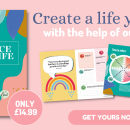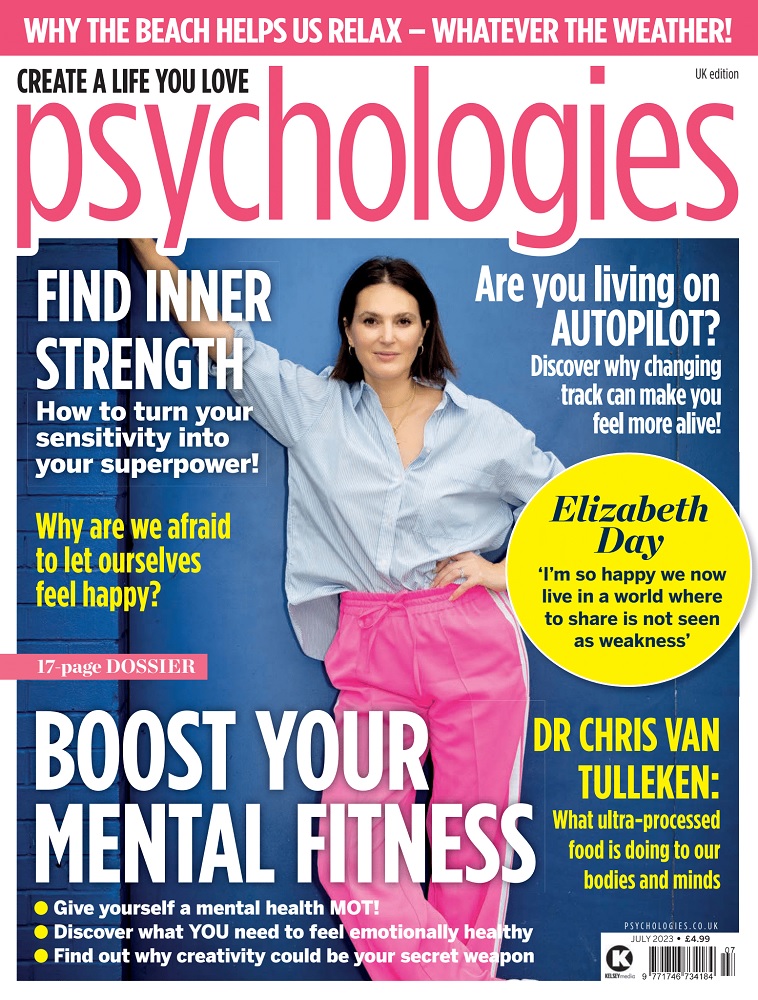How to be realistic: balancing optimism and pessimism
Are you an optimist or a pessimist? Either way, research shows you can benefit from learning to take a more realistic, grounded view, as Hazel Davies discovers...

Most of us seem to naturally gravitate towards either optimism or pessimism. While many assume that optimism is side we should strive towards, the middle ground could in fact be the happiest destination. Hazel Davies discovers how to find the balance between optimism and pessimism and be more realistic…
Having messed up my A levels, I was living with my parents in Kent at the age of 18. I had no idea what I was going to do with my life, no plan B and no wealthy benefactors to lend a hand. So I did what any sane person would do – I called the tourist board of a remote Scottish island and asked whether they knew of a farmer who would take me in as a worker in exchange for board and lodging. It happened in books, so why not to me?
Most called it idiocy, others warned me I’d be murdered within a fortnight. I like to think of it as the perfect example of my optimistic nature at work. The stunt worked out fine – in fact, it was life-changing in all the right ways. But I knew it would be. I’ve always been an optimist to the point of Pollyanna.

Optimism versus pessimism
When I quit my PhD and decided to write for free for a local listings magazine, I knew that things would eventually work out. My optimism is the reason I’m writing this in a West Yorkshire garden in bright sunshine.
Not all my friends share my optimism. One is still working her way through the dried beans she panic-bought two years ago when Covid appeared. Another talks about all the things she’d love to do but never will because ‘things just don’t work out well for me, like they do for you and other people’. I regard what she says with sadness.
I am certain she thinks about my behaviour with a fair amount of horror too: The times I’ve laid on music gigs in my garden – brushing aside my poor partner’s sleepless nights over whether we’ll cover the costs and have enough food with my usual, ‘It’ll be fine!’
Can pessimism be beneficial?
Of course, it doesn’t always work out. I have lost count of the shows, summer camps and holiday lets my family have missed out on because I thought there wouldn’t be a problem. There are, of course, benefits to pessimism.
I have a friend who works for organisations that look after vulnerable people. Her role involves identifying and managing risk, advocating quality of service and creating strategy. ‘In all those settings ,it helps to be pessimistic,’ she says. ‘My natural tendency to predict risks and unintended consequences has helped me avoid, foresee and better manage risks or negative outcomes.’
However, the same tendency drives her mad at home. ‘Envisaging every possible downside of a day trip with the children can quickly tip over into stress and rumination.’
Research from London School of Economics and the University of Bath suggests that a happy medium is best. Perhaps this isn’t news for those who approach life with more realistic expectations than my friends and me, but the research validates the view that good mental health requires accurate self-perception.
It suggests that those with mistaken expectations, whether optimistic or pessimistic, do worse than realists. For optimists, baffled disappointment lies in store when things go wrong, while pessimists, expecting doom, are less likely to take any action at all. The researchers found that plans based on inaccurate beliefs deliver worse outcomes.

Am I being realistic or deluded?
But how do you know whether your interpretation of a situation is distorted or realistic? For example, what if you have a dream of winning a Nobel Prize, or becoming a pop star – many will think that is deluded, but is it?
‘The simple answer is that you can’t know for sure whether you are being realistic,’ says chartered counselling psychologist Tanya Carpenter. ‘You may be told that you can’t be the next Nobel Peace Prize winner when you have that potential and determination, while you may also be told by loved ones that you could be the next winner when that simply isn’t on the cards.’
The key, she says, is to balance realistic goals and expectations with an inner critical voice. Weigh up the evidence carefully. Are your conclusions based on experience or fear? What is the statistical likelihood of the best or worst happening? Would taking the next step enhance your life or make you miserable, chasing something you’re unlikely to achieve?
But why do we see the world the way we do? Why am I able to conjure up an image of people enjoying music, rather than an empty bank balance, while my friend sees danger at every turn?
Are pessimism and optimism genetically determined?
Research from the University of Edinburgh shows that optimism and pessimism are partially biologically determined but, says Carpenter, ‘most practitioners would agree that our previous experiences of similar events may trigger a suite of responses that are optimistic or pessimistic’.
This makes sense, as anyone who’s been in a series of bad relationships will attest. Of course, Carpenter points out that ‘going into relationships with a pessimistic perspective can become a self-fulfilling prophecy, which begs the question: how much do we get to choose to be optimistic or pessimistic and how much is subconscious?’
Finding the reason behind your optimism or pessimism
Carpenter says it is also important how others have reacted to our optimism or pessimism in the past. ‘You may have wanted to analyse or air difficult feelings but people have merely told you to “be positive”. Or you may have had an optimistic attitude but been told you had your “head in the clouds”.’ The challenge is knowing whether you’re using optimism or pessimism as a defence against difficult feelings or emotions. And this is when disaster can occur.
You might be relentlessly optimistic because you believe your own difficult feelings are not acceptable to others – only to have to confront them when things go wrong. Conversely, pessimism can protect you from the risk of what feels like crushing disappointment.

Could your optimism come from a dark place?
I have a hunch that my optimism could come from a slightly darker place than I first thought. Did having an emotionally distant and chronically sarcastic – although never mean – mother cause my desire to see the best in everything? It certainly tallies with my tendency to believe that people are fundamentally nice.
‘Realism is accepting reality as it is without illusions and imitations. It’s the ability to understand that pure objectivity is nearly impossible as all our perceptions are rooted in our experiences and environments,’ says Martina Paglia, a psychologist at The International Psychology Clinic.
One way of doing this, she suggests, is simply admitting mistakes and failures: ‘If you are protecting and hiding your struggles, your messy journey or your traumatic past, your character will be less realistic.’
Seeking a balance between optimism and pessimism
It seems that it’s what we do with our suffering that’s important. If we defend ourselves too much with unrelenting optimism, we risk what the research suggests – being overcome with disappointment if what we want doesn’t come to pass. But if we try to bypass disappointment and failure with abject pessimism, we risk not fulfilling our potential.
I know my optimism makes me happy most of the time. Waking up in wonder at what good things the week might bring has to be better than the alternative. But, at the same time, I know that a dose of realism might save my partner the odd sleepless night.
How to be realistic
Determine whether you are too optimistic or pessimistic, then aim for balance and learn how to be more realistic…
Are you overly optimistic?
- Do you regularly count your blessings and conveniently gloss over the bad stuff?
- Are you known to let opportunities pass you by because you believe you deserve better and more?
- Do you blame the universe for not helping you instead of working hard to make the best out of a negative situation?
- Are you in a rush to be successful in certain areas of your life, such as work or love?
Are you overly pessimistic?
- Do you constantly expect the worst, then cite your predictions when something undesirable happens to you?
- When something positive happens, do you consider it a lucky accident?
- Do you give up easily when faced with a tricky situation?
- Do you hold onto resentment and struggle with forgiveness?

The solution:
‘Write down your thoughts honestly and compare them with the cognitive distortions described above to see if what’s concerning you is realistic or your own biased thinking,’ says psychologist Martina Paglia.
‘By becoming aware of your biases, flaws and internal assumptions, you can become more honest with yourself. Ask yourself: ‘Is what I am feeling a factor an opinion?’






